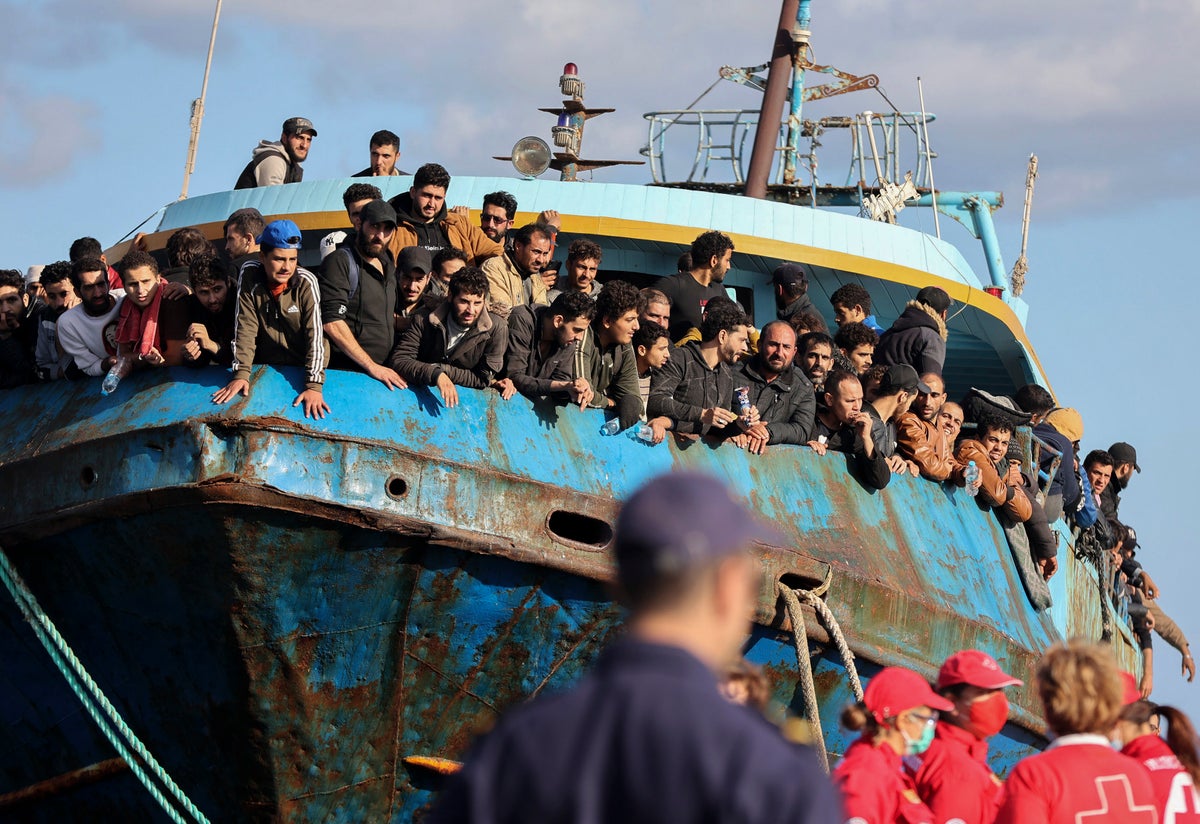
Greek authorities say a dilapidated fishing boat crammed with migrants that was towed to port after losing steering in rough seas south of Crete was carrying a total of 483 people who had sailed from Libya.
The coast guard said Thursday that those on board were Syrians, Egyptians, Pakistanis, Palestinians and Sudanese and included 336 men, 10 women, 128 boys and nine girls. They were all were transferred Wednesday afternoon to a ferry docked in southern Crete for temporary housing.
The passengers had been crammed into a 25-meter (82-foot) fishing boat that had set sail from Libya and had been heading to Italy, the coast guard said. Passengers on board made a distress call when the vessel ran into trouble and lost steering while sailing in the Mediterranean off the southern Greek island of Crete in the early hours of Tuesday.
A major rescue operation was mounted, involving a Greek frigate, two coast guard vessels, five nearby merchant ships and two Italian-flagged fishing boats. The adverse weather conditions, with strong winds and rough seas, prevented the passengers from being transferred to any of the other vessels, and the fishing boat was eventually towed to a port in southeastern Crete by one of the Italian-flagged fishing vessels.
Migration Minister Notis Mitarachi sent a letter to the European Commission Tuesday afternoon, requesting that the passengers be relocated to other European Union nations. He stressed that Greece and other countries on the EU’s external borders where many migrants first arrive in their effort to reach wealthier European nations “cannot be expected to shoulder an ever-increasing burden out of proportion to their respective capacities.”
Tens of thousands of people fleeing conflict and poverty in the Middle East, Asia and Africa try to make their way into the European Union each year via perilous sea journeys. The vast majority head to eastern Greek islands from the nearby Turkish coast in small inflatable dinghies or attempt to cross directly to Italy from north Africa and Turkey in larger vessels.
“Europe must prove that it is in a position to provide immediate and tangible solidarity,” by moving new arrivals to other EU countries faster and in greater numbers than it has done so far, Mitarachi said in his letter to the European Commission.







